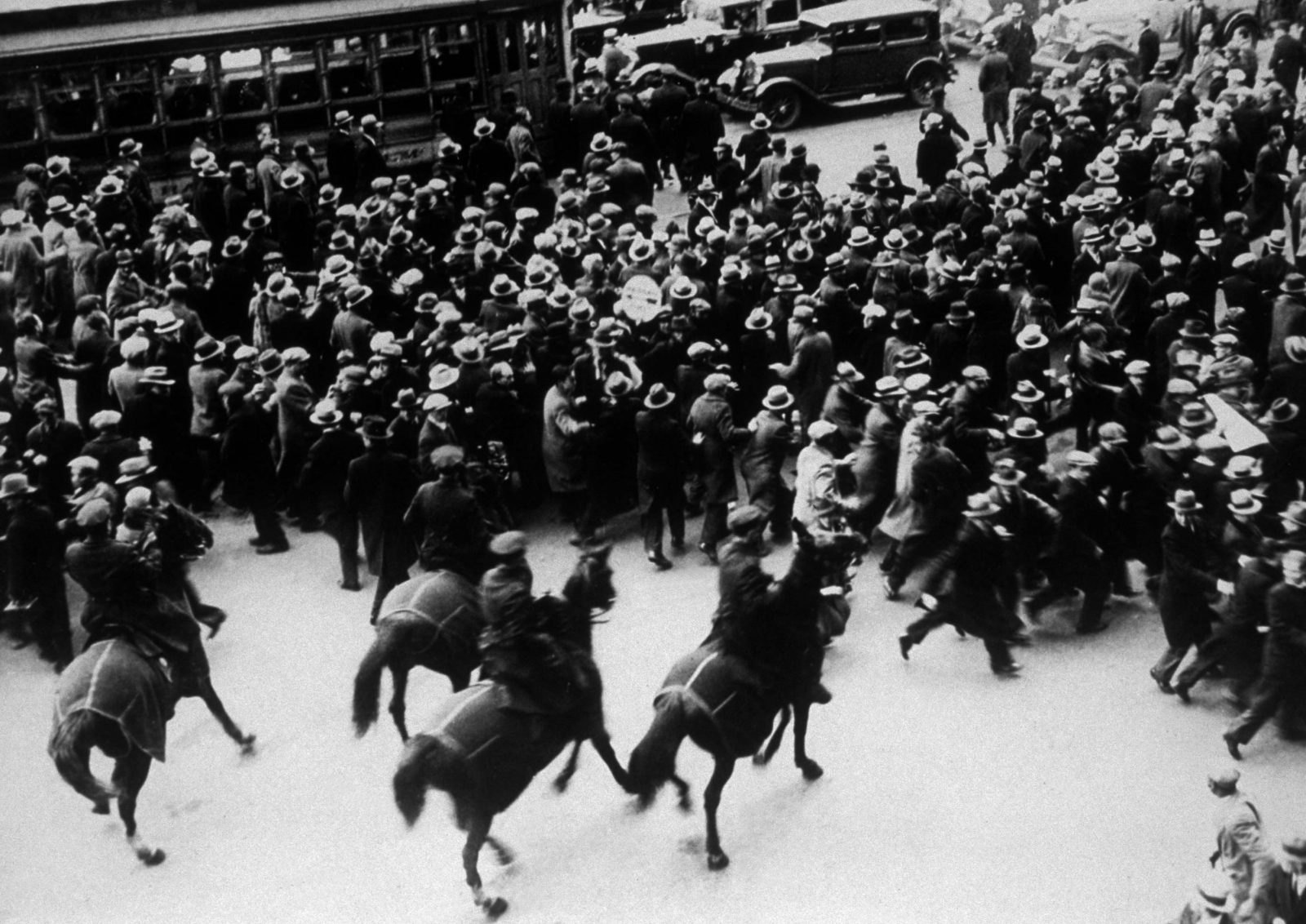This photograph was taken during the Hunger Marches of the early 1930s, when Britain was strained by economic crisis, social unrest, the spread of fascism and the long shadow of international conflict.
The policing of the hunger marchers was the catalyst for Liberty’s founding when, in 1932, the organisers of the National Hunger March attempted to deliver to Parliament a petition of one million signatures in protest against legislation that had plunged thousands into extreme poverty. One hundred thousand people gathered in Hyde Park to meet the marchers, who had walked for three weeks from Glasgow. Among them was Liberty’s founder Ronald Kidd.
[ms-protect-content id=”8224, 8225″]
The protest’s leader, Wal Hannington, was promptly arrested, refused bail and the petition confiscated by the police – and thousands of officers were mobilised against the protest. Violent clashes erupted in the park, and spread rapidly throughout central London, leaving many seriously injured. In Trafalgar Square, Kidd witnessed police agent provocateurs disguised as workers attempting to incite violence among the peaceful protestors.
Over the following year, Kidd worked to raise awareness of the threat to peaceful protest. Ahead of the next Hunger March, planned for February 1934, he put out a circular letter to a number of eminent figures of the day, gathering support from across the political spectrum, from politics, law, the arts and sciences.
On 22 February 1934, at a meeting in the vestry hall of St Martin’s-in-the-Fields Church in Trafalgar Square, the National Council for Civil Liberties was formed. Their immediate goal was to make sure that the next Hunger March was peaceful and safe. But the founders agreed that the Council would be needed long after the march was over, to defend ‘the whole spirit of British freedom’. They were absolutely right.
In the years since, the National Council for Civil Liberties (subsequently renamed Liberty) has campaigned on women’s rights, gay rights, and the rights of ethnic minorities, against overbroad police powers, against torture, against punishment without trial. The common theme that has run through all of these campaigns has been protection of fundamental rights and freedoms, respect for the rule of law, and thoroughly British notions of justice and fairness. At the end of March, Liberty will return to its 1930s roots when we act as legal observers for the TUC march against public spending cuts.
The photograph depicts a long gone era – just look at the clothes worn by the police and the marchers, and the vehicles in the background. Since then, everything and nothing has changed. Protection of the right to protest peacefully is as much on the agenda today as it was when this photograph was taken.
Today we strive to continue the work that the Council began. When Ronald Kidd died in 1942 his friend and colleague E. M. Forster wrote a tribute to him, which is carved on a plaque, which still hangs in Liberty’s offices: ‘Passionate in his hatred of injustice, wise in judgement, fearless in action, he championed the liberties of the people in the fight that is never done.’
[/ms-protect-content]
Published in Photoworks, Issue 16, 2011
Buy Photoworks issue 16
